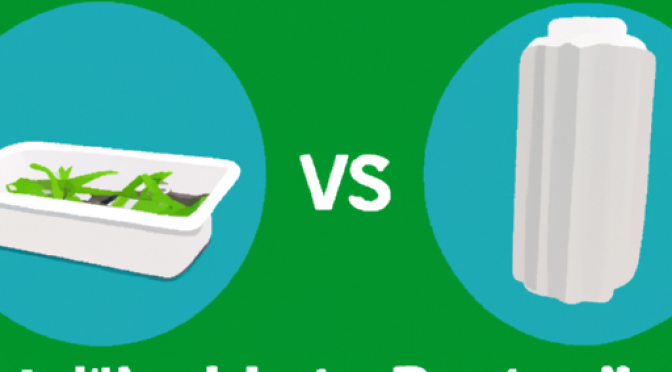What is the difference between biodegradable and conventional plastics?
The use of plastics has increased significantly in recent decades and this growth has caused serious environmental problems. Conventional plastics are difficult to degrade due to their long life cycle and often remain in the environment for centuries. The development and use of biodegradable plastics is therefore becoming increasingly important.
Conventional plastics
Conventional plastics, such as polyethylene (PE), polypropylene (PP) and polyvinyl chloride (PVC), are made from fossil fuels such as oil or gas. These plastics are extremely durable and resistant, which makes them widely used. However, the degradation process of conventional plastics is very slow and they persist in nature for a long time.
Biodegradable plastics
Biodegradable plastics are materials that naturally degrade and can be recycled back into nature. These plastics are usually plant-based, for example made from corn or sugar cane. Biodegradable plastics are designed to degrade under the action of micro-organisms and enzymes, and eventually transform into organic materials.
Differences
There are many differences between biodegradable plastics and conventional plastics:
- Degradation time: biodegradable plastics degrade much faster, usually in a few months or years, while conventional plastics can persist for centuries or even millennia.
- Source: Biodegradable plastics are produced from plant-based raw materials, while conventional plastics are derived from fossil fuels.
- Environmental impact: Biodegradable plastics have less impact on the environment because they do not produce harmful substances during their degradation. However, conventional plastics emit harmful substances during degradation.
- Uses: Biodegradable plastics are generally used for single-use products such as packaging or cutlery, whereas conventional plastics can be used for a wide range of applications.
The use of biodegradable plastics can help reduce plastic pollution and environmental impact. However, it is important to note that biodegradable plastics need to be degraded under appropriate conditions, such as composting or industrial digestion, to be used in a truly environmentally friendly way.
∑: plastics, biodegradable, conventional, degrade, degradation, environmental, however, materials, impact
